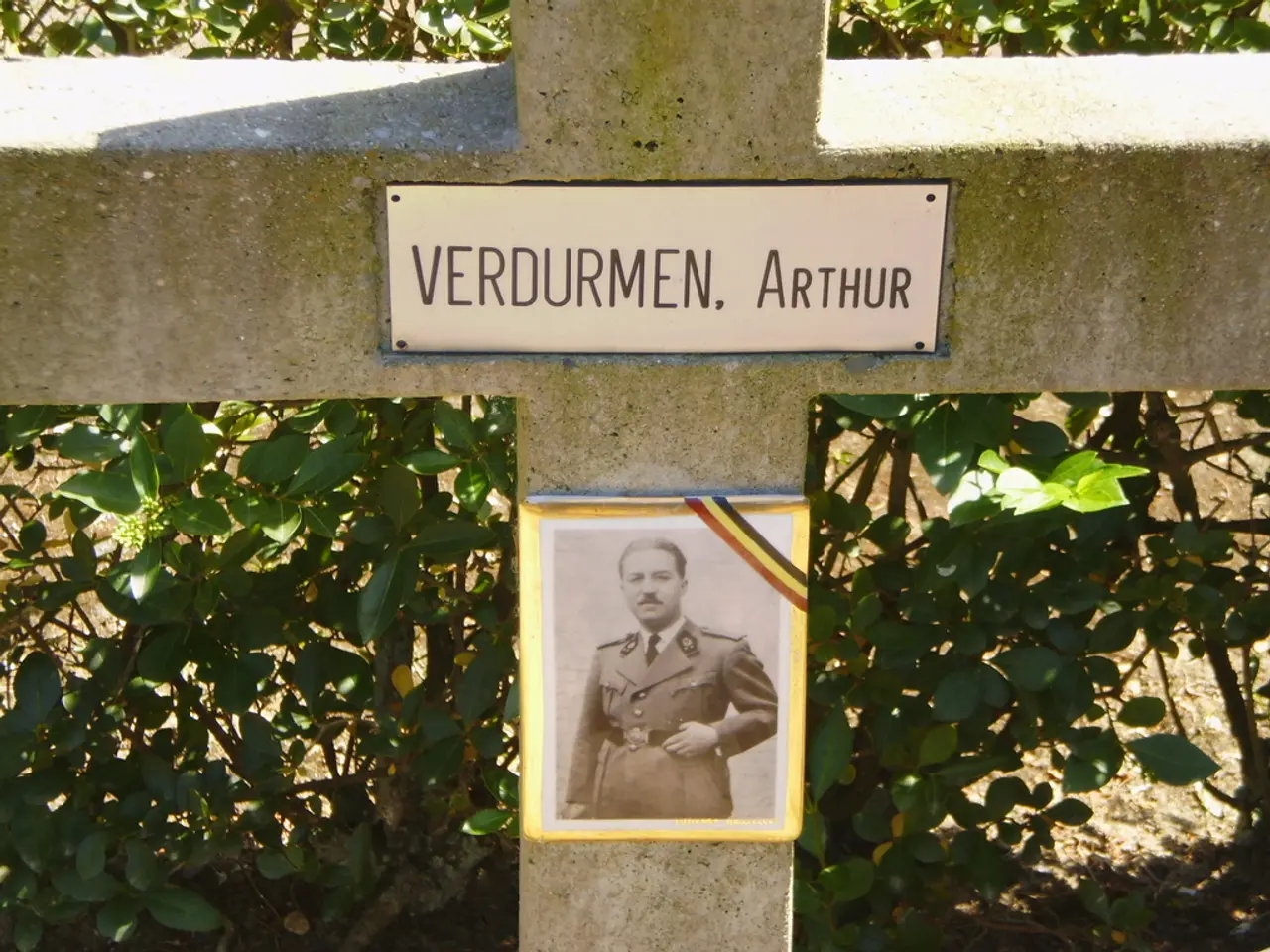Rising Electricity Costs in Germany Attributed to Macron's Power Policies
In the heart of Europe, France is facing an unprecedented energy crisis as nearly half of its nuclear power plants remain offline or are operating at reduced capacity. The reasons for the outages have not been specified, but the current drought and heatwave in the country are causing some nuclear power plants to reduce their capacity due to high river temperatures preventing the use of water for cooling.
Most of the remaining reactors are running at reduced capacity, leading to a quarter less electricity being produced in 2022, according to French energy giant EDF. This reduction in nuclear power, which covers around 67% of France's electricity needs, has caused prices to skyrocket due to scarcity.
The energy regulator CRE in France predicts a "historic price difference" between France and Germany for the fourth quarter, with the price of a megawatt hour in France being 1055 euros for November, compared to 600 euros in Germany. President Emmanuel Macron is taking steps to ensure French citizens don't notice the rising electricity prices, such as capping electricity prices and extending these measures until the end of the year.
The reduced electricity production is also affecting neighbouring countries, particularly Germany, which is currently exporting more electricity to France than France is exporting to Germany. The rising electricity prices in France could further increase the sharply rising prices in Germany, according to a report by WELT.
The heat-induced cooling water temperature limits are the main cause of French nuclear plants running at lower capacity in the summer. Regulatory limits on the temperature of discharged cooling water to protect aquatic ecosystems force EDF to reduce output or temporarily shut down some reactor units, especially those relying on river water cooling along the Rhône and Garonne rivers.
The potential impacts on electricity prices include upward pressure on prices in France due to the reduced low-carbon nuclear output, increasing reliance on alternative energy sources which may be costlier or more carbon-intensive. Because France and Germany share interconnected electricity grids and market coupling in the EU, reduced French nuclear supply can also contribute to higher electricity prices in Germany, especially in summer demand peaks when nuclear output is curtailed.
In December, corrosion damage was discovered in some of the newer French nuclear reactors, adding to the challenges faced by EDF. The COVID-19 pandemic has also caused delays in maintenance work on French nuclear power plants.
Most analysts recommend holding onto EDF's stock despite the company's struggles, as it remains a key player in Europe's energy market. However, the potential shortage of electricity in France this winter is looming, and the prices on the futures markets indicate that the nuclear power problem in France is unlikely to be fully resolved this winter.
Sources:
[1] The Guardian. (2022, June 29). France's nuclear power crisis: why is the country facing an energy shortage? Retrieved August 2, 2022, from https://www.theguardian.com/world/2022/jun/29/frances-nuclear-power-crisis-why-is-the-country-facing-an-energy-shortage
[2] Reuters. (2022, July 20). France's EDF to post 24 billion euro loss this year, up from earlier forecast. Retrieved August 2, 2022, from https://www.reuters.com/business/energy/frances-edf-to-post-24-billion-euro-loss-this-year-up-from-earlier-forecast-2022-07-20/
[3] Carbon Brief. (2022, July 14). France's nuclear crisis: why are reactors offline and what does it mean for the climate? Retrieved August 2, 2022, from https://www.carbonbrief.org/frances-nuclear-crisis-why-are-reactors-offline-and-what-does-it-mean-for-the-climate
[4] Euractiv. (2022, July 13). France's nuclear crisis: why is the country facing an energy shortage? Retrieved August 2, 2022, from https://www.euractiv.com/section/energy/news/frances-nuclear-crisis-why-is-the-country-facing-an-energy-shortage/
- The energy crisis in France, exacerbated by nuclear power plants operating at reduced capacity, has led to a significant increase in electricity prices, causing a "historic price difference" between France and Germany.
- The reduced output of nuclear power in France, which usually covers around 67% of the country's electricity needs, could contribute to higher electricity prices not only in France but also in neighboring countries, such as Germany, due to their interconnected grids and market coupling in the EU.






